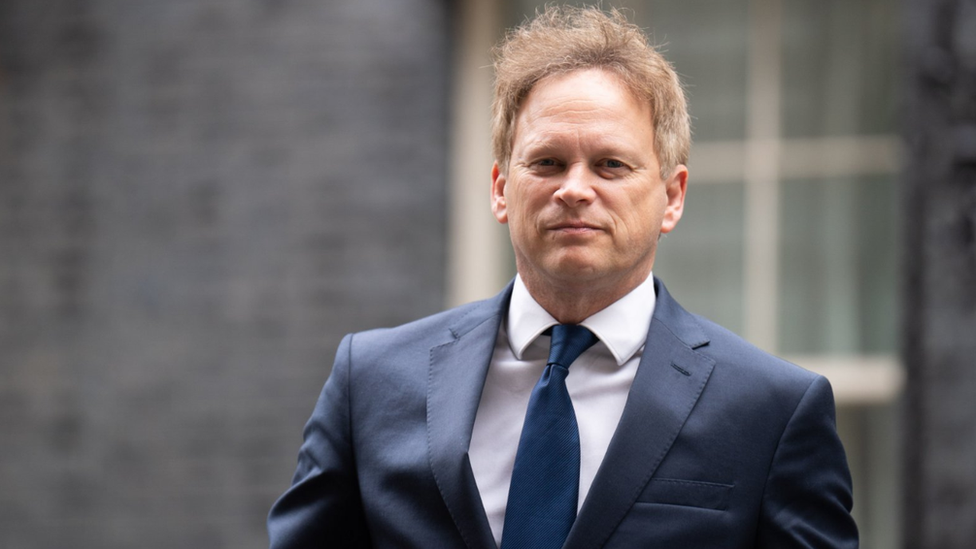Households to be spared net zero levy, says Shapps
- Published

Grant Shapps said it is important the UK gets its hydrogen industry "up and running"
Householders will not have to pay more on their energy bills to fund hydrogen production, Grant Shapps has indicated.
An annual levy was expected to be introduced in 2025, external to cover the cost gap between producing low-carbon hydrogen and polluting fossil fuels.
But, signalling a U-turn Mr Shapps said he opposed a direct charge on the bills of energy consumers.
He said: "I don't want to see people's household bills unnecessarily bashed by this."
The Onward think tank has estimated the hydrogen levy would raise energy bills by around £118 per year, external for the average dual fuel household.
Writing in the Telegraph, external Mr Shapps said he did not want to see a "levy directly on households" but insisted it is vital the UK gets its hydrogen industry set up to take advantage of "massive export opportunities".
"The way that's funded will have to be further up the chain," the Energy Security Secretary said.
This could potentially include landing the industry with the costs or general taxation.
The newspaper reported talks are ongoing between Mr Shapps's Department for Energy Security and Net Zero, Downing Street and the Treasury to agree an alternative.
There are hopes the new scheme will be put out to consultation before the end of July.
Government plans for a hydrogen levy have caused a backlash from Conservative and opposition MPs who warned against increasing energy bills that soared in the wake of Russia's invasion on Ukraine and amid a cost-of-living crisis.
In response to Mr Shapps's announcement Labour criticised the about-turn as an effort to swerve a rebellion by Tory backbenchers.
Shadow energy minister Alan Whitehead claimed the government is "completely out of touch with reality".
Setting out his party's plan Mr Whitehead said: "Labour will continue to stand up for the millions of families across the country that are paying the cost for Tory failure.
"We will reform our broken energy system to we deliver the green transition we so desperately need, energy security, and bills that are affordable."

Sign up for our UK morning newsletter and get BBC News in your inbox.

Related topics
- Published17 August 2021

- Published4 November 2021
